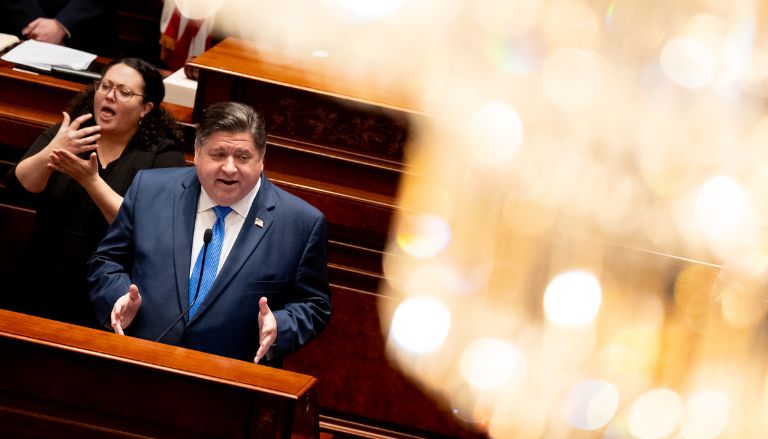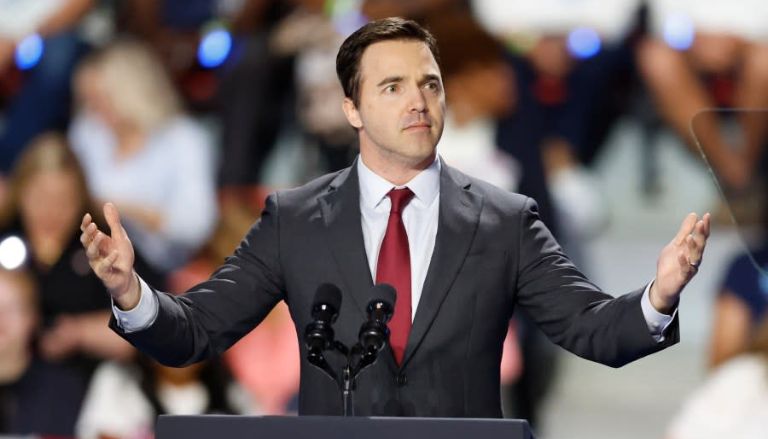SPRINGFIELD, Ill.— After years of government aid because of the pandemic and strong tax revenue growth, Illinois is now getting ready for a financial reckoning. On Wednesday, Governor JB Pritzker will give his seventh budget speech. The fiscal year that starts on July 1, 2026, is expected to have a deficit of $3.2 billion. Since pandemic aid has run out and tax income growth has stopped, the state’s finances are becoming more uncertain.
In the past few years, Illinois has had a strong economy and received unprecedented federal aid, which has helped the state keep its budget surpluses and pay for important services. But as the economy slows down and funds from the pandemic run out, the financial picture is changing in a big way. The Illinois Governor’s Office of Management and Budget (GOMB) has warned that the state’s finances will become very tight if income or spending policies don’t change significantly.
The state is also dealing with the chance of getting less federal money, which adds to the uncertainty. Widespread federal budget changes could make it hard for Illinois to keep up with key programs if former President Donald Trump gets a second term. States across the country are getting ready for possible cuts in funding that could affect social safety nets and public services.
Mandatory spending keeps going up, but income stays the same at about $53.4 billion. The following are some of the biggest rises in spending for FY26:
K–12 Education: The law calls for an extra $350 million.
Pensions: A $440 million raise that is required by law.
Healthcare: An increase of $1.1 billion because temporary government reimbursements are ending.
General Government Spending: Costs are going up across all state offices because of inflation.
Illinois’s income rose 2.8% from January of last year to January of this year, but some places are showing signs of falling. Compared to last year, corporate income tax receipts have dropped 14%, and sales tax revenue has stayed the same. This is partly because funds were moved to fund building projects.
Governor Pritzker has said many times that he thinks big tax increases should only be used as a “last resort.” Instead, his government is working to make things run more smoothly so that taxpayer money is used wisely.
This month, Deputy Gov. Andy Manar said, “We’re going to focus on making sure that we can reassure the people of the state that the tax revenue that’s generated from a growing economy…is being put to good use.” “There won’t be a lot of talk about new money coming in during the budget address.”
Even so, the governor hasn’t come up with a clear plan to close the budget gap that is getting bigger. On the other hand, Republicans say that cutting funding for programs that help immigrants who don’t have papers should be a top concern.
“If he wants to find places to cut costs, he should start with the billions of dollars that go to giving illegal immigrants lots of nice things,” said Rep. Amy Elik, R-Godfrey. “The state of Illinois can’t keep paying for free government aid to illegal immigrants while costs for its own people go through the roof.”
Republicans have long been against state programs that help undocumented people get health care. The Health Benefits for Immigrant Adults and Health Benefits for Immigrant Seniors programs, which cover noncitizens over 42 in a way similar to Medicaid, caused a stir last year when their costs went over $1 billion. After new limits were put in place, planned spending dropped to $558 million for the current fiscal year. However, Republicans say that these programs should be gotten rid of completely.
How stable federal funding is is one of the biggest unknowns for Illinois’s financial situation. The state gets about 15% of its total budget—$18.5 billion—from the federal government to pay for healthcare, education, and other important services. An extra $2.7 billion is set aside for capital projects and infrastructure.
If big government budget cuts happen, they could be very bad, especially for health care. If the federal government cuts Medicaid funds, Pritzker says, the state will not be able to make up for the lost money. Pritzker said, “If they decide to cut off Medicaid, that only covers 50% of the cost for each person. That means we won’t be able to cover the other 50%.” “Those numbers are way out there.”
Illinois could also lose money for the Affordable Care Act’s Medicaid expansion program, which helps more than 900,000 people right now. If the federal government cut off funds to the state, there is a law that would automatically end coverage for these people.
Along with schooling and health care, Illinois’ public transportation system has a huge funding gap. Due to the end of government pandemic relief funds in 2026, the state’s transit agencies, especially those in the Chicago area, will likely have an annual deficit of $730 million.
About 17% of the money for the Chicago transit system comes from the state right now, but people who support public transportation say that Illinois should give more. In most other big U.S. towns, the states pay between 25% and 50% of the costs of the transit system. Tax hikes and other possible options are being talked about, but there is still no clear plan.
The Illinois State Board of Education wants an extra $653 million to be given to public schools in Illinois for grades PreK through 12. With this offer, the state would give just over $11 billion to schools this year.
For the state’s higher education programs to keep getting help, the Illinois Board of Higher Education has also asked for an extra 4% ($108.8 million) in funds. The Monetary Award Program (MAP) grants help low-income students pay for college. If the request is approved, $50 million would be given to these grants.







Leave a Comment